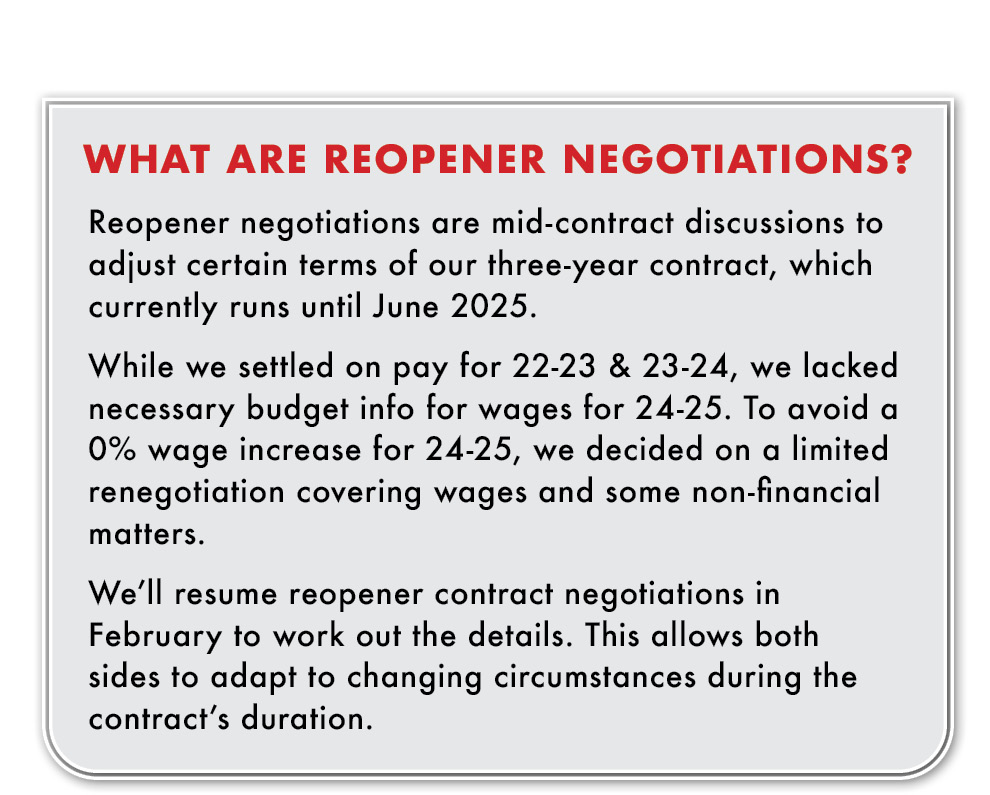
In the words of Mark Twain, “there are three kinds of lies: Lies, Damned Lies, and Statistics.” These wise words hold true today, especially when it comes to our district’s budget. Some administrators have been painting a rather gloomy picture of our financial situation, often attributing it to the significant wage increases won by SDEA members in the last contract campaign. The good news is that even SDUSD Superintendent Jackson has been pushing back on the narrative that our wage agreement from last year is leading to a budget crunch. However, it’s still important to separate fact from fiction and establish a more realistic outlook, especially as we approach reopener negotiations later in the school year. So, what’s the real story behind the SDUSD budget? Here are four key insights that provide clarity.


The District’s budget deficit has been portrayed as massive, sparking concerns about major cutbacks. However, it’s essential to examine the foundation of the District’s budget. For instance, health benefits costs have been rising by an average of about 9.5% annually, as per data from VEBA. Inflated health insurance rates are affecting San Diego Unified, which fully funds our health benefits. But here’s the twist: the SDUSD budget assumes an almost 19% increase in health benefit costs, tacking on approximately $20 million unnecessarily to a possible deficit. Similar discrepancies can be found in other areas, like a $10 million increase in the budget for books and supplies, well above typical annual expenditures. These unrealistic assumptions create a paper deficit that might not match the true financial situation.

Raising alarms about next year’s budget at this stage may be a bit hasty. Why? Well, because we lack crucial information about the state’s funding for the upcoming year. The state budget is expected to provide additional funding to the District, it might not be as generous as in previous years, but it will nonetheless be expected to be a new ongoing increase in funding. So, it’s prudent to hold off on dire predictions.
Also, the first interim report, which typically gets published in December, and offers a close look at the District’s actual spending for the year, has yet to be finalized. This report is more than just numbers on paper; it provides an invaluable snapshot of the District’s expenses up to that point. While the annual budget involves a bit of crystal ball gazing, the interim report paints a clearer picture of our actual budget situation.
Intriguingly, there’s another development on the horizon. Enrollment trends seem to be stabilizing, a factor that doesn’t appear to have been considered in the District’s initial budget assumptions, which were based on expectations of continued declining enrollment. These significant factors are often overlooked by those who paint a gloomy picture of the budget.

Surprisingly, last year, even after implementing wage increases, the District had over $163 million in unrestricted reserves. This surplus is substantial and could potentially cover most genuine deficits, even without accounting for budgetary fluff.

As SDUSD staff receive their full 15% raise, it’s expected that many will opt for retirement. This presents an opportunity for the District not to fill positions in areas where additional staffing isn’t necessary. This could lead to significant savings in the coming year. However, effective position control is crucial. The District must avoid unnecessary hiring and prioritize staffing in essential areas, all without compromising the quality of services provided to our students.
So, what’s the bottom line? Undoubtedly, our wage increases and the costs associated with maintaining fully paid benefits will impact the District’s budget. While enrollment appears to be stabilizing, we’ve lost a significant number of students in recent years, resulting in a decline in average daily attendance. However, the state has consistently increased per-pupil funding, which should allow us to modestly increase compensation in the upcoming renegotiations. It’s important to note that these increases may not match the levels experienced in recent years but are more likely to align with historical averages.
Share
Blog
April 9, 2025
Know Your Rights & Know Your Vote: 2025 Post & Bid
We need to ratify an agreement to continue phasing out Fall "Excessing"! Read the full agreement: Ongoing Implementation of 2025 – 2026…
April 7, 2025
Budget Input Sessions
The SDEA Bylaws give members the opportunity to provide feedback on the SDEA Budget. There are two virtual budget input sessions scheduled…
April 2, 2025
The Standard: Switch Through April 30
SDEA members, are you already enrolled in The Standard? Your opportunity to switch to The Standard for your CTA-endorsed Disability is now…



